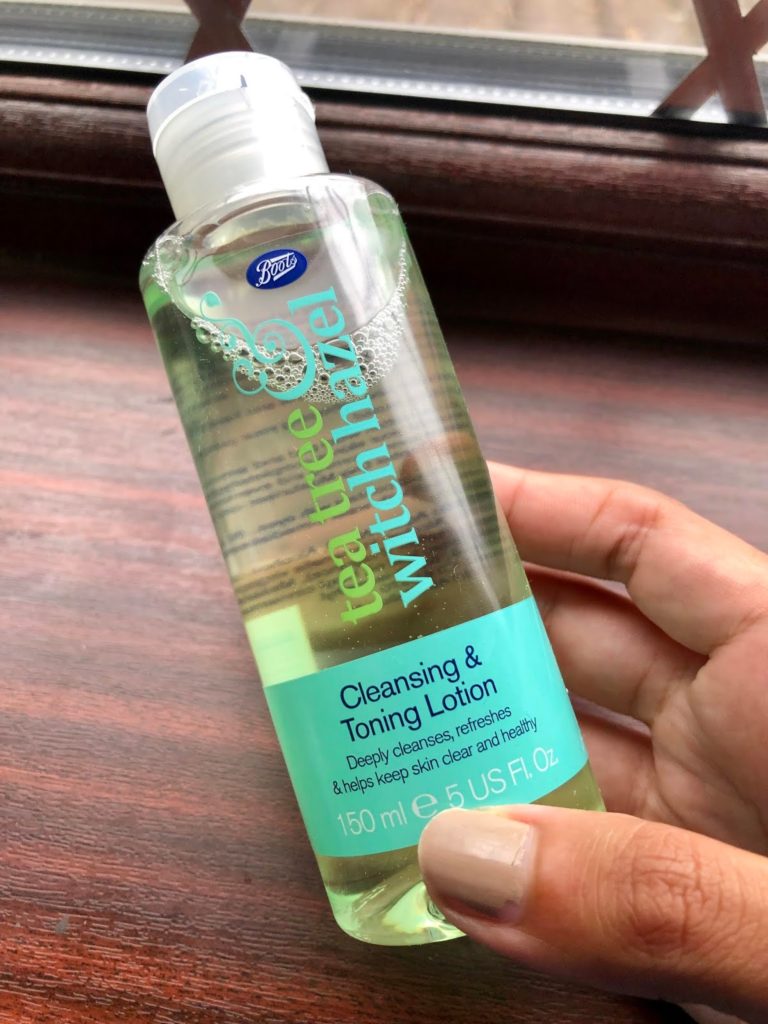Searches for the old school botanical are up than 300 per cent on Pinterest. But, the debate is that buying into the trend would do your skin more harm than good in the long term. Here’s all what you need to know about Witch Hazel.
There are some comebacks in beauty that are worth the buzz, some not so much. And there’s one in particular that took us by surprise because of how much the first time it split opinions – witch hazel. Not only are searches for botanical up by 305 percent on Pinterest, but in recent months a number of brands have also introduced ranges based around the ingredient.
What is Witch Hazel?
Sometimes you can find it as hammamelis virginiana water on your labels, derived from the witch hazel plant. Known for its antioxidant and astringent properties, it is a key ingredient in products with oily and acne-prone skin forms, aimed at soothing redness. Simple’s latest Daily Skin Detox collection is one such example. With Micellar Cleaning Spray, Polishing Face Scrub, Face Wash and more, the six-piece set mixes the plant extract with thyme, zinc and vitamin B3 to help minimize glare, smooth skin and combat blemishes.

Similarly, Boots has also recently launched a collection of Tea Tree & Witch Hazel including a Blemish Stick, Concealer Stick, Pore Strips, Cleaning Wipes and even a Back Spray. All formulated with the breakout-prone requirements in mind.

What’s behind the sudden increase in ingredient demand? Consultant dermatologist Dr Anjali Mahto tells me, “I suspect the resurgence in the market we are seeing is due to the increased consumer drive for products derived from nature.” Does she think it still has a place today in our skincare regimes? Perhaps, with ‘leave-on’ items such as toners or targeted spot treatments, if you have oily or acne-prone skin, it can provide the greatest value. That being said though, it’s far from a perfect solution. “I don’t think it’s a suitable ingredient for everyone and it has the ability to cause irritation in those with sensitive and rosacea-prone skin,” she says. There are better options out there in her opinion (more on that in a moment though…)
Why does Witch Hazel cause irritation?
Witch hazel’s propensity to cause irritation is one of the main criticisms put forward by skincare experts such as Beautypedia creator and Paula’s Choice Skincare founder, Paula Begoun. This outweighs any anti-inflammatory and antioxidant properties it has. “Witch hazel isn’t worth all of the hype or excitement, in fact it is a problem for all skin types and we’re worried about this strange fascination with it,” she says. “There is no new research proving it has any benefit for skin.”
Its ability to be irritating can also be amplified as a result of its distillation process. “It is mixed with alcohol and that’s even worse,” she explains. “Almost all witch hazel products rely on the skin-damaging kind of alcohol to extract the plant for use in skin care. Up to 15 per cent of that alcohol remains, and research is clear that much lower amounts than that can trigger skin cell death and barrier damage.”
If you’re looking to remove excess oil in the short-term, it can help. However, this can come at a price: “The irritancy of witch hazel toners can trigger more oil production at the base of the pores,” warns Paula. “So, while you’ll see a short-term benefit of less oil, in the long-run daily use of witch hazel is capable of making skin more oily! This, in turn, can trigger more breakouts.”
What are better alternatives?
If you have oily or acne-prone skin, Paula recommends incorporating salicylic acid into your routine, an ingredient that’s incorporated into two products of her Clear range. Look for a percentage of one to two per cent concentration in your products. “This will help reduce clogged pores, breakouts, oily skin, rough texture, pore size, and even increase hydration,” she says.
Dr Mahto, who has oily and spot-prone skin herself, is also a fan of salicylic acid too. “It’s a good and safe ingredient which provides many of the benefits of witch hazel. It also acts as an anti-inflammatory on acne-prone skin,” she says. Try Paula’s Choice 2% BHA Liquid Exfoliant, £26, or Murad AHA/BHA Exfoliating Cleanser, £35.
If you have rosacea-prone or sensitive skin though, she recommends using gentler polyhydroxy acids such as lactobionic or maltobionic acids instead. Her top product pick is Neostrata Bionic Face Cream, £42.
Can Witch Hazel be a part of my routine?
Yes, just from the neck down and for short-term, intermittent use only. “It can help soothe and offset the itching sensation from insect bites and help alleviate the uncomfortable symptoms of poison oak and ivy,” says Paula. “It can even help bruises fade faster, this being due to the tannins witch hazel contains. These can speed the breakdown of what causes a bruise’s color by constricting blood flow.” Definitely not something that you’d want on your face though.
Read on more regarding which products to use and which ones to avoid.
